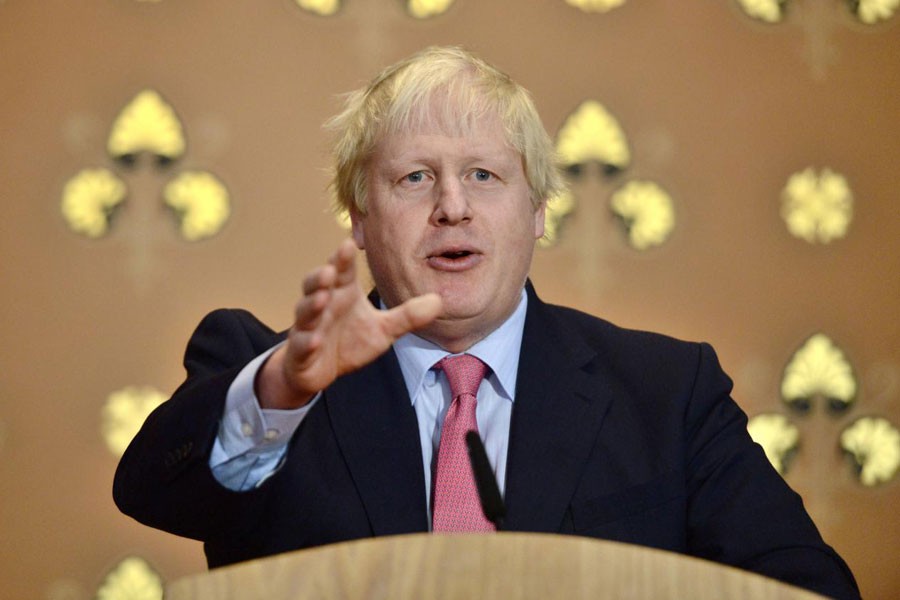British MPs are due to vote later on the government's call to have an election on 12 December.
Boris Johnson said if the motion was approved, his Brexit bill would resume its progress through Parliament until that is dissolved on 6 November.
Two-thirds of MPs - 434 - would have to back the motion for it to pass under the law which sets election timings.
Meanwhile EU ambassadors from the other 27 nations will meet to consider the date of a Brexit deadline extension.
They have agreed to delay Brexit and are expected to make a decision on a new date, with an option for the UK to leave earlier if and when a deal is signed off.
A draft text of an agreement for the ambassadors includes multiple possible dates for Brexit: 30 November, 31 December or 31 January.
There will also be a commitment that the Withdrawal Agreement on the UK's exit from the EU cannot be renegotiated in future, the BBC reported.
In Westminster, the prime minister may not get the backing he requires for an election on the date he has chosen.
Jeremy Corbyn has said Labour is not prepared to support it until the risk of a no-deal Brexit is ruled out.
The SNP has said it will block the government's election attempt.
Along with the Liberal Democrats, the party is pushing for an election on 9 December - provided the EU grants a Brexit extension until 31 January.
They have proposed a bill which would tweak the Fixed-term Parliaments Act 2011 - the law which sets the time-frame for elections. That would need a simple majority of MPs.
A Number 10 source said on Sunday that MPs would vote on an election "so we can get a new Parliament".
If the vote was lost, they said the government would then "look at all options" including ideas similar to those proposed by other parties.
MPs have already twice rejected a call from the PM to hold a general election.
Brexit deadline
Mr Johnson has sent a letter to the EU requesting a Brexit delay until 31 January. He was compelled to do so by a law passed by MPs - known as the Benn Act.
Before this, the prime minister repeatedly insisted the UK would leave the EU on 31 October, with or without a deal.
The UK is still due to leave the EU on Thursday - but EU ambassadors are working on an alternative date.
The Guardian is reporting a leaked draft of the agreement contains a three-month extension to 31 January.
The newspaper says the UK could leave earlier - with Brexit taking place on the first day of the month after a deal is ratified. The EU has not commented on the report.
What's happening today?
If there are no urgent questions or statements in the Commons, MPs will begin debating the government's motion at 15:30 GMT.
This is expected to last for 90 minutes, so a vote on the motion could happen at 17:00.


